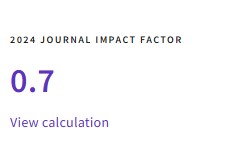Meanings attributed to the terms Psychomotricity and Physical Education in early childhood education
DOI:
https://doi.org/10.24310/riccafd.2021.v10i1.10429Keywords:
Physical Education, early childhood education, psychomotor skillsAbstract
The objective of this study is to analyze the meanings that are attributed to the terms psychomotor and physical education in early childhood education (stage 0-6 years) and the consequences derived from it.
The research has been based on the hermeneutic-interpretive methodological tradition and the data collection method has been the case study. The strategies used to obtain the information have been the in-depth interview, the discussion group and the research journal.
The results obtained make evident the existing terminological-conceptual confusion in relation to the terms physical education and psychomotor skills, resulting in an ambiguity that is hindering the development of physical education in schools and early childhood education teacher training centers.
According to the results obtained, the main cause of this confusion is the conceptual ignorance of the term psychomotor skills, which is usually used by tradition at this stage, being associated with methodologically adequate motor proposals for early childhood education, and the current physical education model. which is perceived in a reductionist way, as it is generally associated with instructive practices, physical conditioning and sports practice, thereby generating the perception that it is not adequate for this stage.
Downloads
Metrics
References
2. Vázquez, B. (1989). La educación física en la educación básica. Madrid: Gymnos.
3. Gil Madrona, P., & Gómez Barreto, I. (2013). La educación física en el marco actual de la educación infantil. En Gil Madrona, P. (Coord): Desarrollo curricular de la educación física en la educación infantil (pp. 17-28). Madrid: Pirámide.
4. Real Orden ECI/3960/2007, de 19 de diciembre, por la que se establece el currículo y se regula la ordenación de la educación infantil. Publicado en BOE nº 5 de 5 de enero de 2008. Referencia: BOE-A-2008-222.
5. Rodríguez, J.J. (2015). Análisis y fundamentación para un modelo de educación física en la etapa de la educación infantil: un estudio de caso en la Universidad Ramon llull. Tesis doctoral publicada. Centro Universitat de Barcelona.
6. Fernández Domínguez, M.R., Palomero Pescador, J.E., & Aranda Lilao, B. (1988). Propuesta para la creación de los estudios de Psicomotricidad en la Universidad española. Revista Interuniversitaria de Formación del Profesorado, 3,146-159.
7. Rigal, R. (2006). Educación motriz y educación psicomotriz en preescolar y primaria. Barcelona: INDE publicaciones.
8. Pastor Pradillo, J.L. (2007). Psicomotricidad. Situación y concepto actual. Revista digital hispano mexicana de la educación física y el deporte, (1), 3, 39-50.
9. González Lucini, F. (2001). La educación como tarea humanizadora. De la teoría pedagógica a la práctica educativa. Madrid: Anaya 21.
10. Coller, X. (2000). Estudio de casos. Madrid: CIS.
11. Latorre, A., Del Rincón, D., & Arnal, J. (1996). Bases metodológicas de la investigación educativa. Barcelona: GR92.
12. Losada, J.L., & López-Leal, R. (2003). Métodos de investigación en ciencias humanas y sociales. Madrid: Thomson.
13. Tójar Hurtado, J. (2006). Investigación cualitativa: comprender y actuar. Madrid: La Muralla.
14. González Lucini, F. (2001). La educación como tarea humanizadora. De la teoría pedagógica a la práctica educativa. Madrid: Anaya 21.
15. Bouché, P. J. (2004). Educar para un nuevo espacio humano. Madrid: Dykinson.
16. Lagardera, F. (1992). Sobre aquello que puede educar la Educación Física. Revista interuniversitaria de formación del profesorado, 15, septiembre/diciembre 1992, 55-72.
17. Cañabate Ortiz, D & Tesouro Cid, M & Puiggali Allepuz, J & Zagalaz Sánchez M.C (2019). Estado actual de la Educación Física desde el punto de vista del profesorado. Propuestas de mejora. Revista Retos, 35, 47-53.
18. Serrabona, J. (2003). La psicomotricidad dentro del marco educativo. Tesis doctoral no publicada. Universitat Ramón Llull. Facultat de Psicologia i Ciències de l’Educació i de l’Esport Blanquerna.
19. Pastor Pradillo, J.L. (2005b). Principios teóricos para una fundamentación de la intervención psicomotriz. Tabanque, 19, 229-242.
Downloads
Published
How to Cite
Issue
Section
License
All the contents published in Revista Iberoamericana de Ciencias de la Actividad Física y el Deporte are subject to the Creative Commons Reconocimento-NoComercia-Compartirigual 4.0 license, the full text of which can be found at <http://creativecommons.org/licenses/by-nc-sa/4.0>
They may be copied, used, disseminated, transmitted and publicly exposed, provided that:
The authorship and original source of your publication (Journal, editorial and URL of the work) are cited.
They are not used for commercial purposes.
The existence and specifications of this use license are mentioned.

Copyright is of two kinds: moral rights and patrimonial rights. Moral rights are perpetual, inalienable, inalienable, inalienable, inalienable and imprescriptible prerogatives.
In accordance with copyright legislation, Revista Eviterna recognizes and respects the moral rights of the authors, as well as the ownership of the economic right, which will be transferred to the University of Malaga for dissemination in open access.
The economic rights refer to the benefits obtained by the use or disclosure of the works. Revista Iberoamericana de Ciencias de la Actividad Física y el Deporte is published in open access and is exclusively authorized to carry out or authorize by any means the use, distribution, disclosure, reproduction, adaptation, translation or transformation of the work.
It is the responsibility of the authors to obtain the necessary permissions of the images that are subject to copyright.
















9.png)
